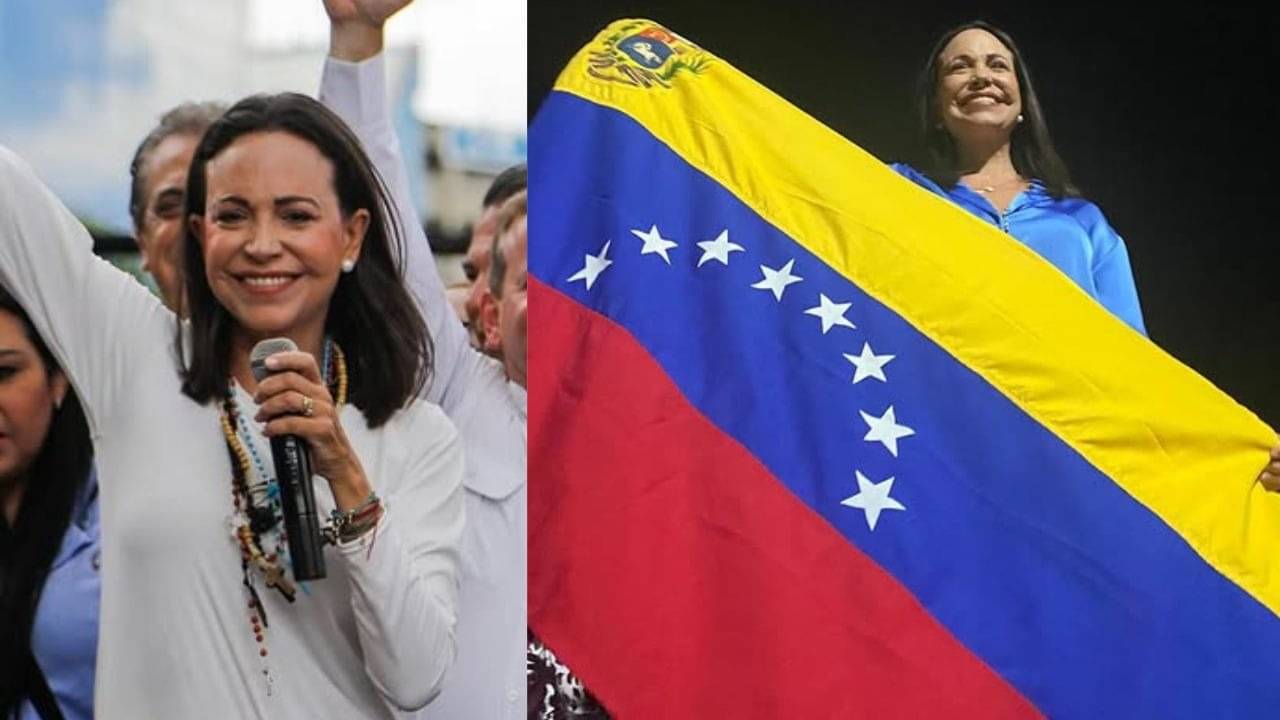The Woman Who Chose Courage Over Comfort: Why María Corina Machado Deserved the Nobel Peace Prize | Image:
Instagram
New Delhi: In a world where powerful leaders often seek recognition for brokering deals from positions of safety and privilege, the Norwegian Nobel Committee made a bold statement this year. They chose to honor not a former president with access to armies and diplomatic channels, but a woman hiding in her own country, fighting for democracy with nothing but her voice and her conviction.
María Corina Machado’s Nobel Peace Prize is not just an award. It is a message to every dictator and every oppressed person across the world.
The Real Meaning of Sacrifice
When US President Donald Trump expressed disappointment at not receiving the Nobel Peace Prize, many wondered why his efforts—ending wars and promoting peace deals, were overlooked. The answer is simple: the Nobel Peace Prize is not given for transactions made from the safety of the White House. It is given for transformation achieved through personal sacrifice.
Trump negotiated from a position of unmatched power, protected by the world’s strongest military and surrounded by advisors. María Corina Machado fights from hiding, knowing that discovery could mean imprisonment or worse. Trump dealt with world leaders as equals. Machado faces a dictator who has crushed dissent and silenced opposition.
This is not to diminish diplomatic efforts. Peace agreements matter. But the Nobel Committee recognized something more fundamental—the courage to stand up for human rights when standing up could cost you everything.
What Makes Her Different
María Corina Machado represents millions of Venezuelans who have watched their country slide from prosperity into poverty, from democracy into dictatorship. Under Nicolás Maduro’s regime, Venezuela has experienced economic collapse, mass migration, and systematic suppression of basic freedoms.
In last year’s election, despite overwhelming evidence that the opposition won, Maduro declared himself the victor. International observers called it fraud. The people of Venezuela knew it was theft. But instead of accepting defeat or fleeing the country like many others, Machado stayed. She went into hiding, yes, but she continued to speak out, to organize, to keep hope alive.
The Nobel Committee said she received the award for “keeping the flame of democracy burning.” This is no small thing. When authoritarian leaders try to extinguish freedom, they target not just institutions but the very belief that change is possible. They want people to give up, to accept oppression as permanent. Machado refused to let that happen.
The Power of Peaceful Resistance
What sets Machado apart—and what likely convinced the Nobel Committee—is her commitment to peaceful change. She could have called for violent uprising. She could have encouraged armed resistance. Instead, she has consistently advocated for democratic processes, free elections, and non-violent opposition.
This is the hardest path. Violence often brings quick attention and dramatic results. Peace requires patience, persistence, and the willingness to suffer without striking back. It requires believing in the power of truth and justice even when they seem powerless against tanks and torture.
History shows us that this kind of courage often succeeds where violence fails. From Gandhi in India to Mandela in South Africa, from Solidarity in Poland to the Civil Rights Movement in America, peaceful resistance has toppled seemingly invincible regimes. Machado follows in this tradition.
Why This Matters Beyond Venezuela
Some may ask: why should we care about one opposition leader in one Latin American country? The answer is that democracy is fragile everywhere. Authoritarianism is rising globally. When we honor someone like María Corina Machado, we send a signal that the world is watching, that dictators cannot simply crush dissent without consequence.
The Nobel Peace Prize gives Machado protection—it becomes much harder for the Maduro regime to harm someone with such international recognition. It gives hope to Venezuelans who might otherwise despair. And it reminds all of us that real heroism is not found in signing papers in the Oval Office, but in standing up for what is right when doing so requires everything you have.
The Lesson for All of Us
Donald Trump wanted the Nobel Peace Prize to validate his achievements and his place in history. But the Nobel Peace Prize is not a reward for success—it is recognition of sacrifice in service of humanity’s highest ideals.
María Corina Machado may never govern Venezuela. She may never see the democracy she fights for fully restored. But she has already achieved something more important: she has shown that one person’s courage can inspire millions, that truth can survive in the darkest times, and that the human spirit cannot be permanently crushed by any dictator.
In choosing her over more famous, more powerful candidates, the Nobel Committee reminded us what peace really requires. Not deals made from safety, but courage shown in danger. Not power exercised from above, but dignity defended from below. Not the absence of conflict, but the presence of justice.
María Corina Machado deserved this prize not despite being in hiding, but in many ways because of it. She represents everyone who refuses to bend when bending seems wise, who speaks when silence seems safer, who keeps fighting when fighting seems futile.
In the end, that is what keeps democracy alive—not the calculations of the powerful, but the courage of those who have nothing left to lose except their principles, and who choose to keep those principles no matter what.
ALSO READ: India-UK Trade Deal: Scotch Whisky and Strategic Ties in Focus

